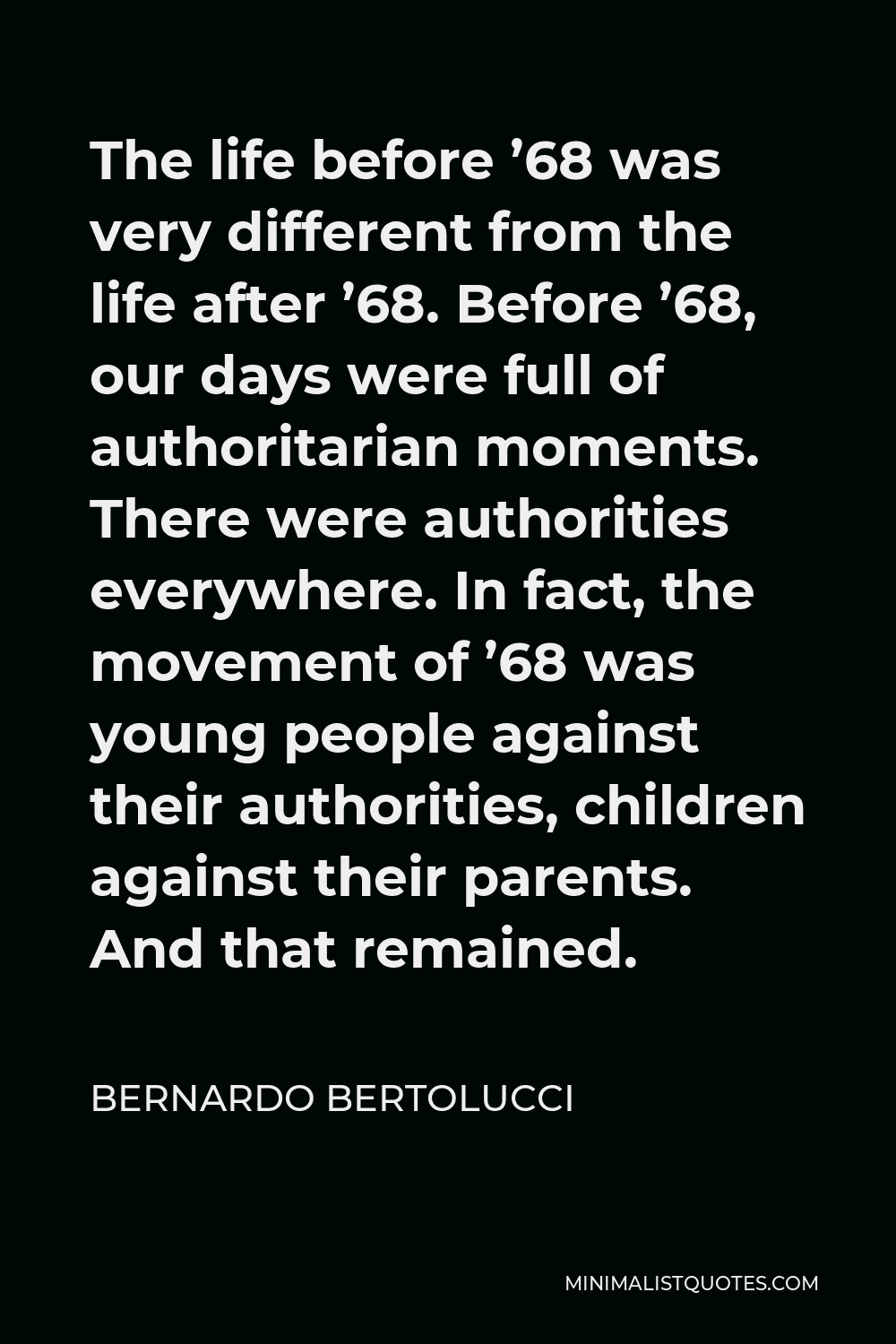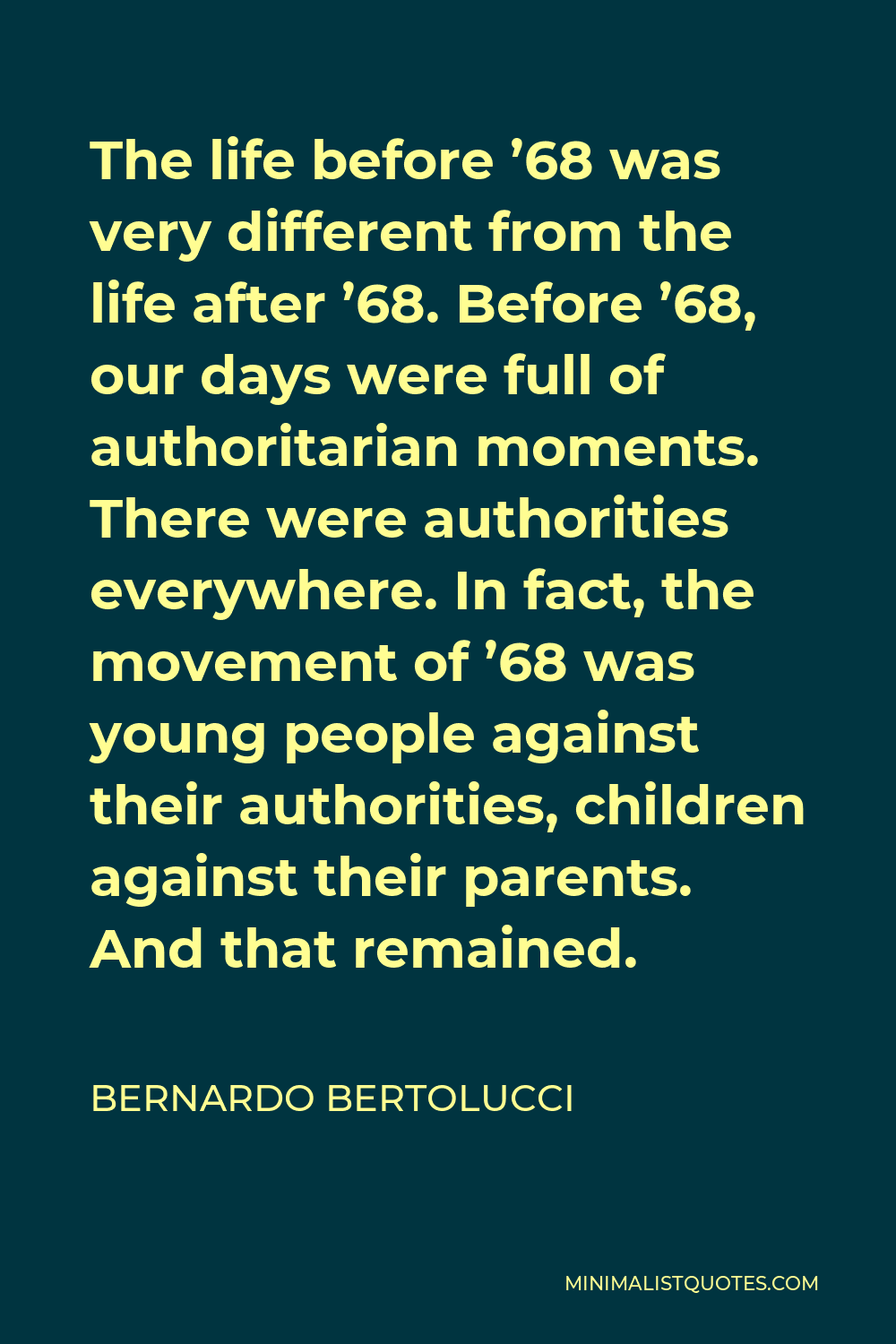A dolly move is a moral commitment.
BERNARDO BERTOLUCCIThe life before ’68 was very different from the life after ’68. Before ’68, our days were full of authoritarian moments. There were authorities everywhere. In fact, the movement of ’68 was young people against their authorities, children against their parents. And that remained.
More Bernardo Bertolucci Quotes
-





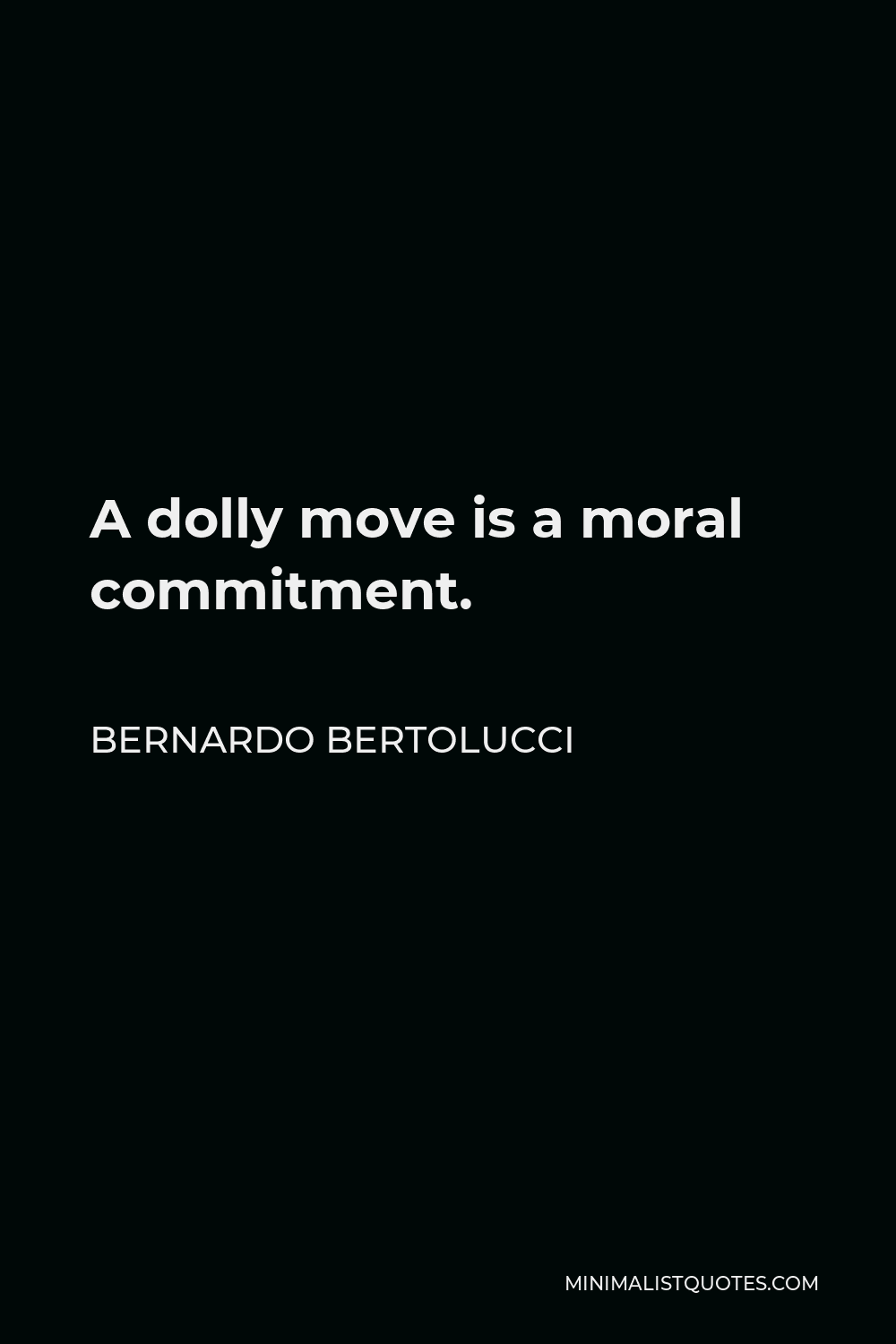
-





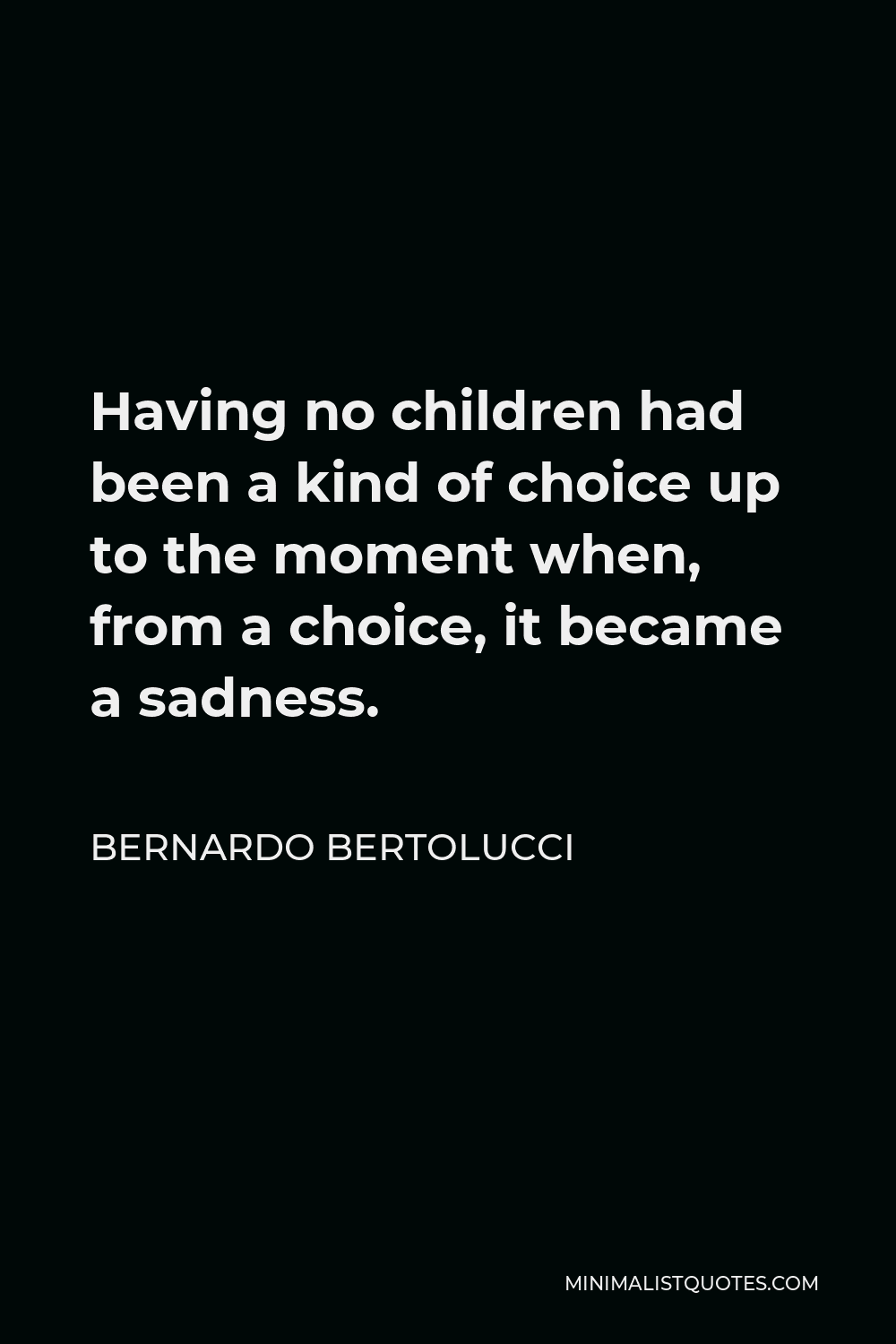
Having no children had been a kind of choice up to the moment when, from a choice, it became a sadness.
BERNARDO BERTOLUCCI -





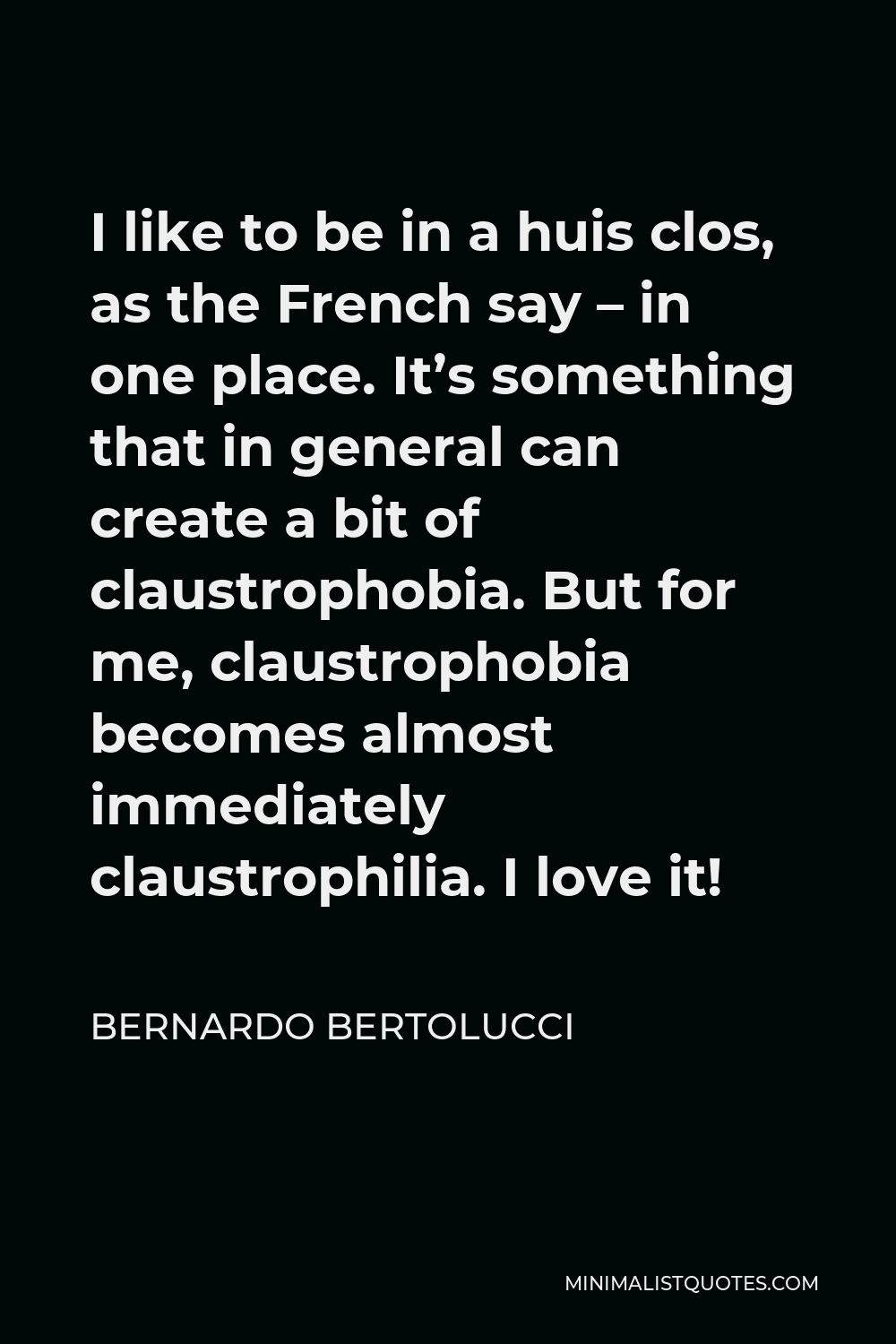
I like to be in a huis clos, as the French say – in one place. It’s something that in general can create a bit of claustrophobia. But for me, claustrophobia becomes almost immediately claustrophilia. I love it!
BERNARDO BERTOLUCCI -





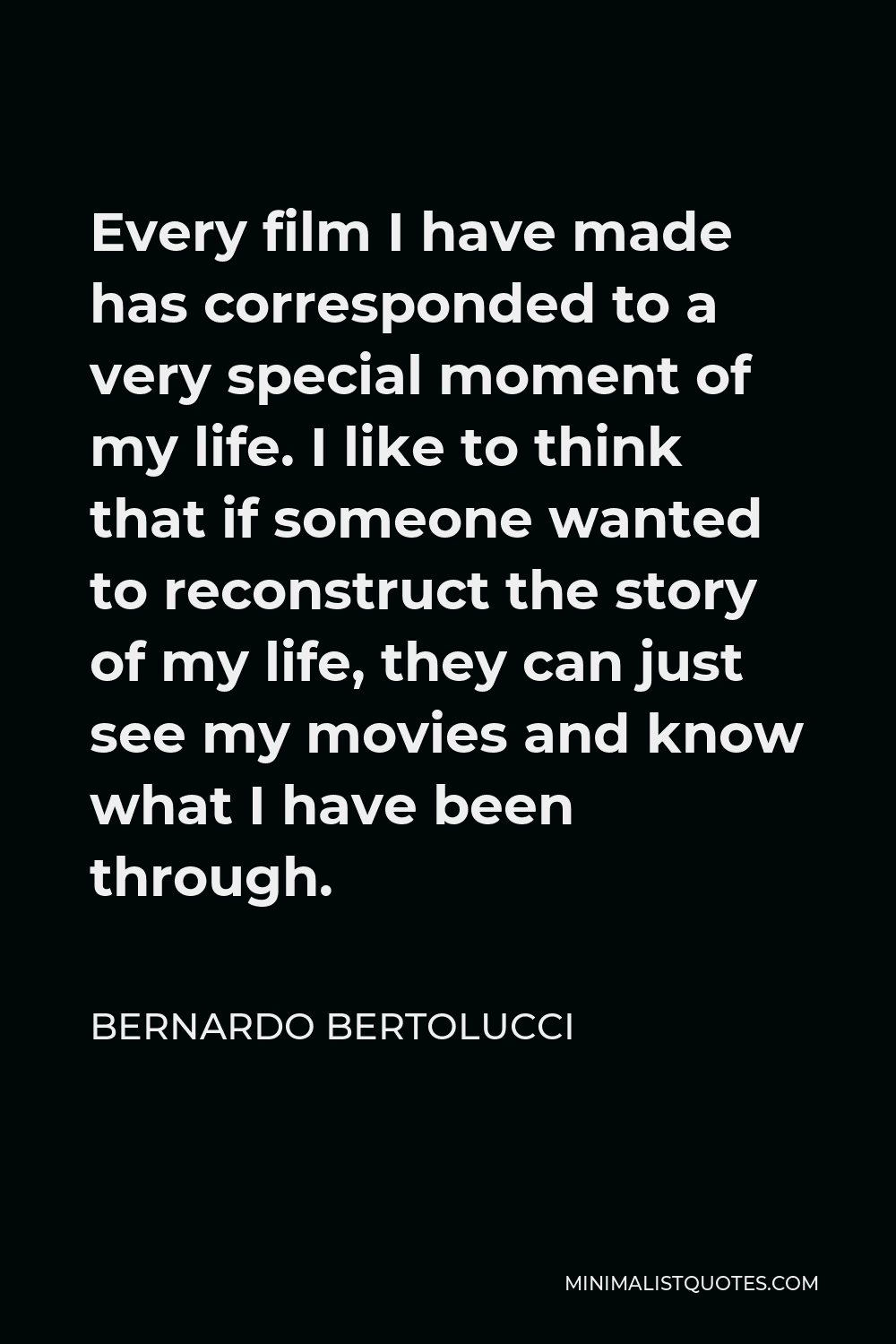
Every film I have made has corresponded to a very special moment of my life. I like to think that if someone wanted to reconstruct the story of my life, they can just see my movies and know what I have been through.
BERNARDO BERTOLUCCI -





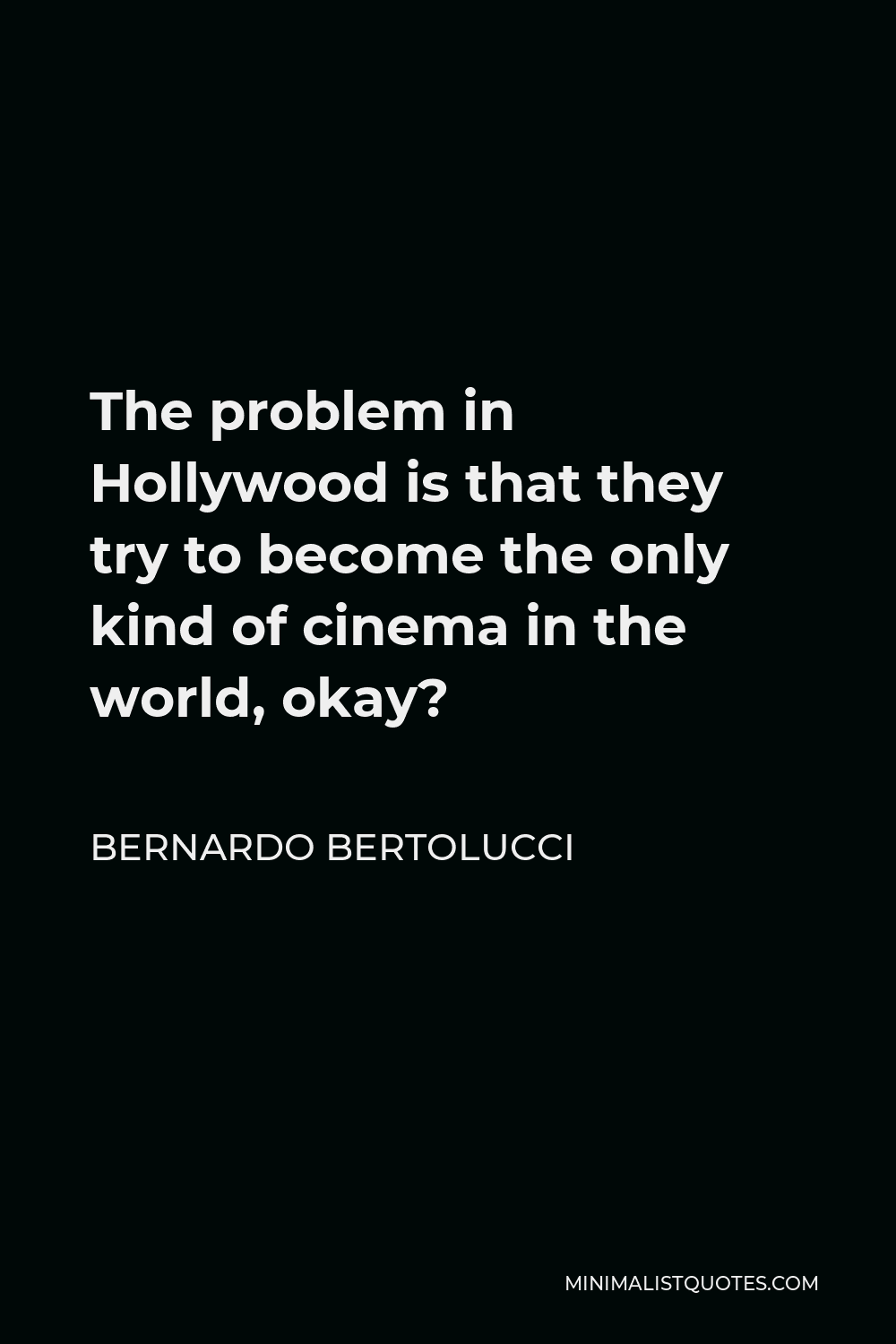
The problem in Hollywood is that they try to become the only kind of cinema in the world, okay?
BERNARDO BERTOLUCCI -





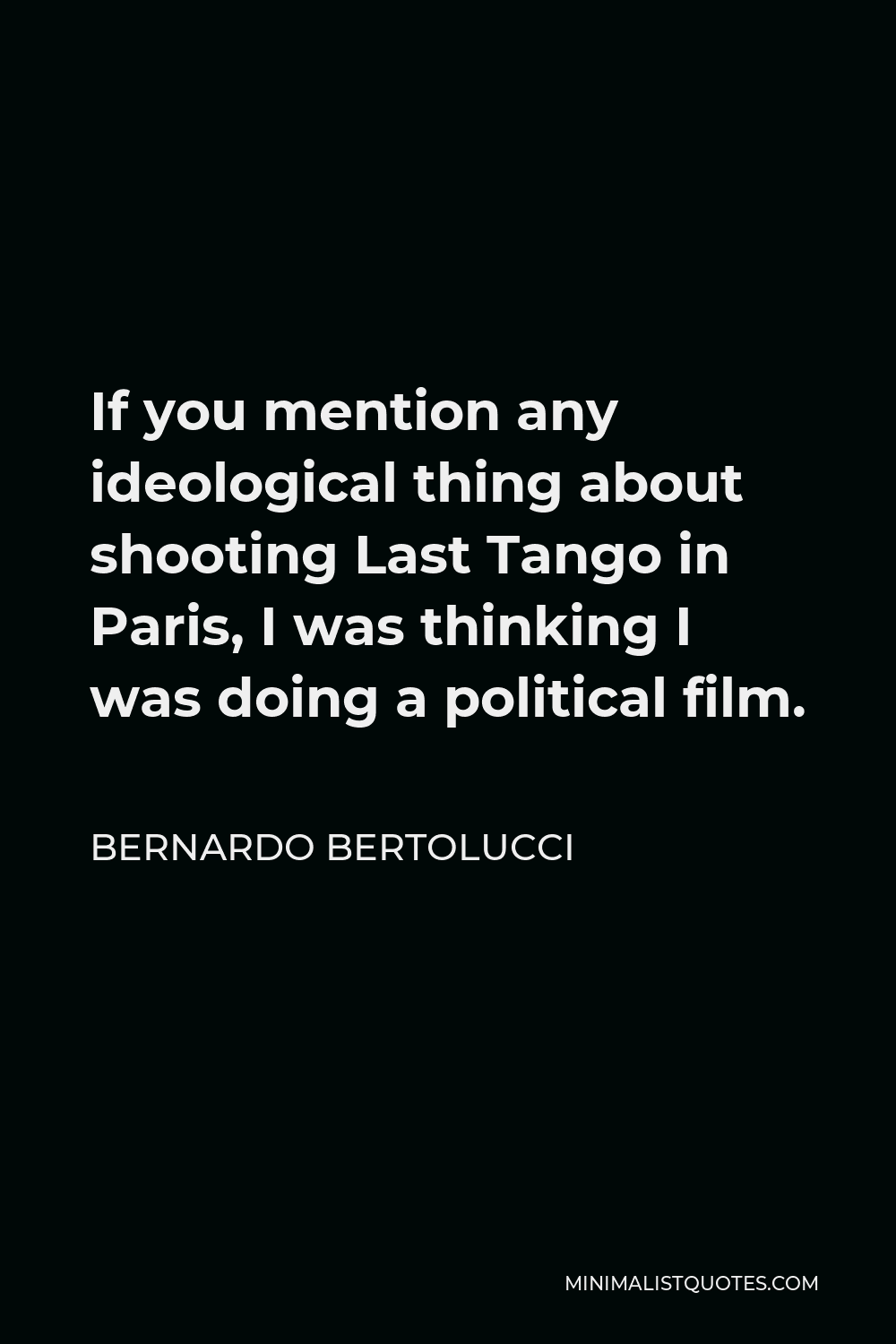
If you mention any ideological thing about shooting Last Tango in Paris, I was thinking I was doing a political film.
BERNARDO BERTOLUCCI -





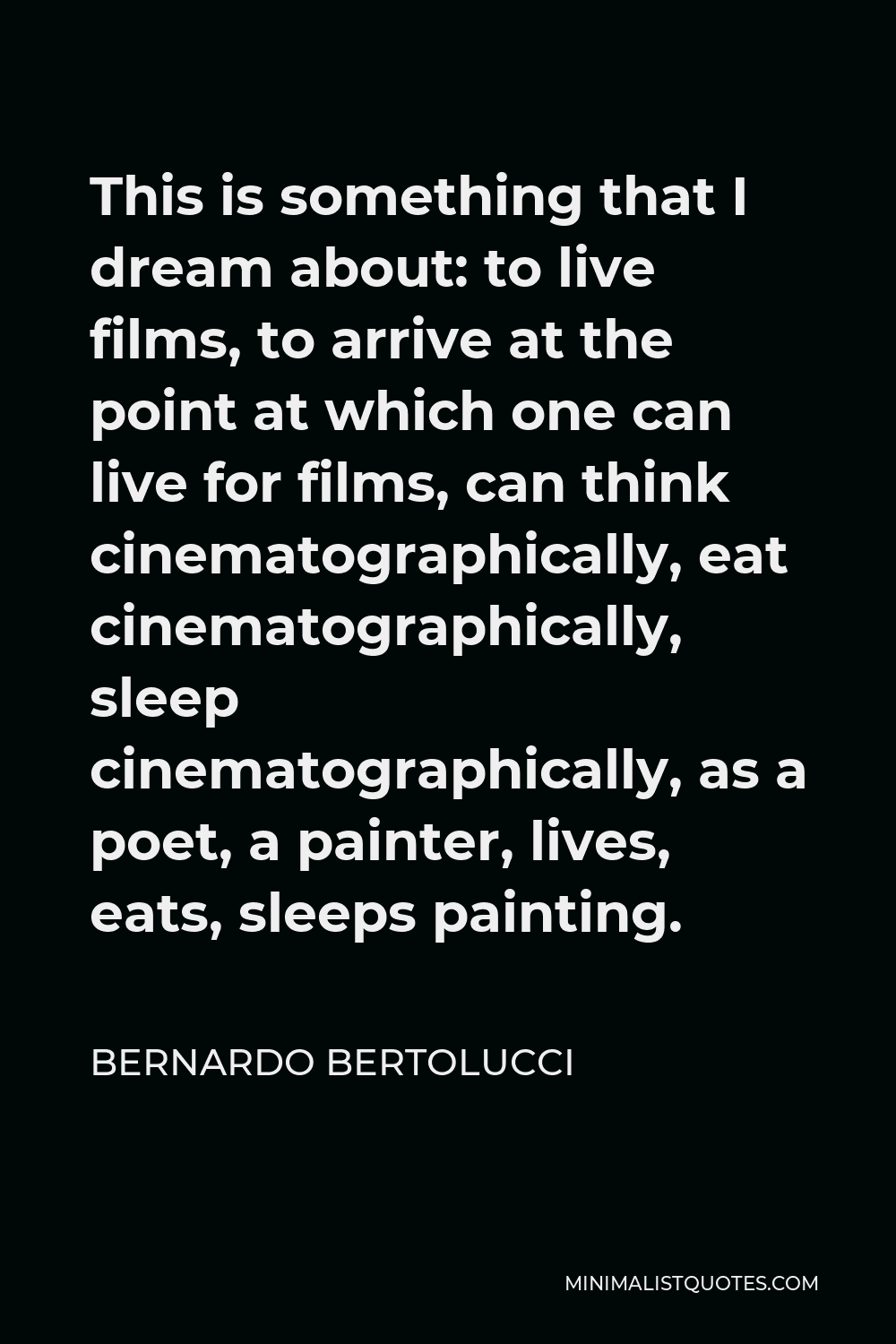
This is something that I dream about: to live films, to arrive at the point at which one can live for films, can think cinematographically, eat cinematographically, sleep cinematographically, as a poet, a painter, lives, eats, sleeps painting.
BERNARDO BERTOLUCCI -





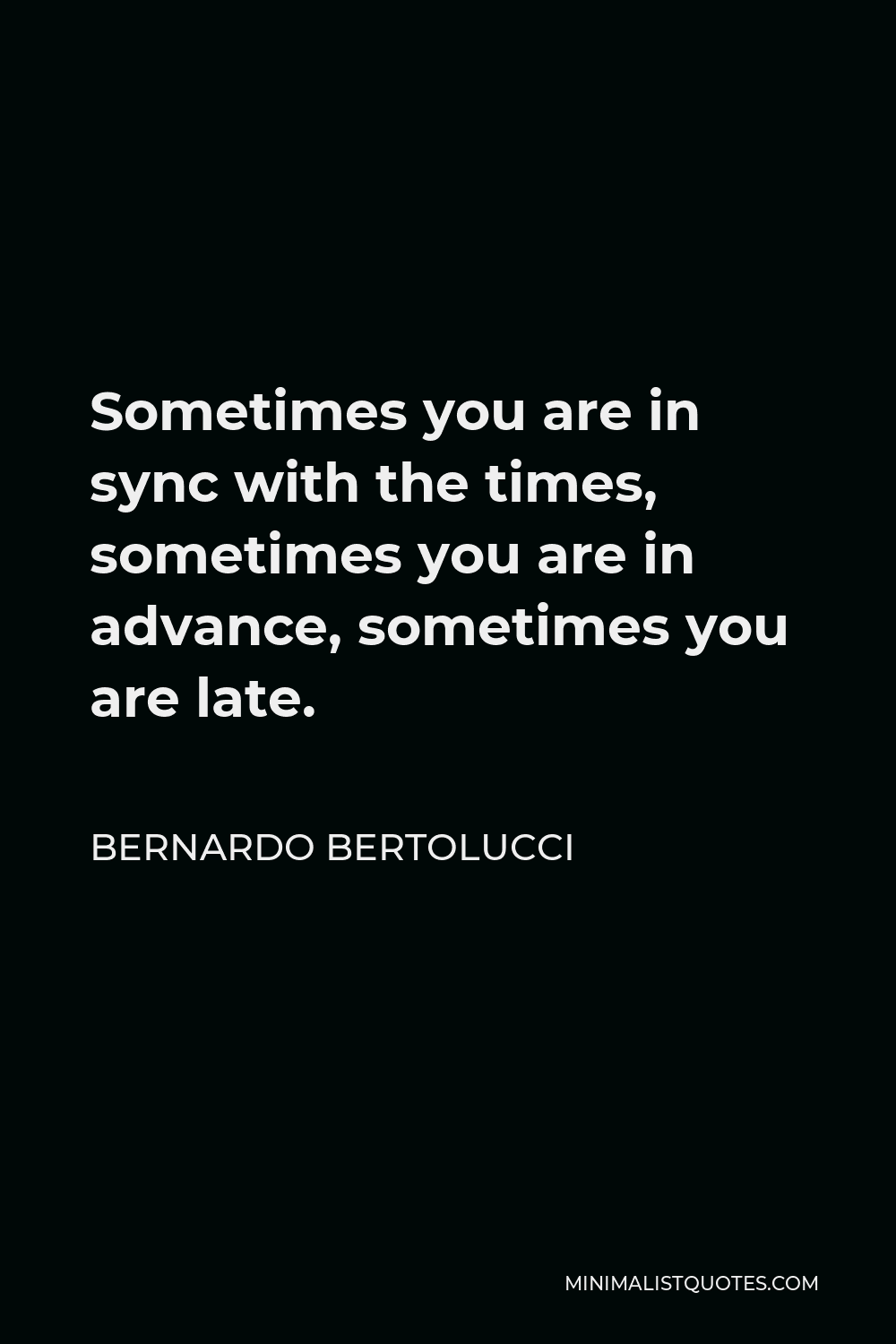
Sometimes you are in sync with the times, sometimes you are in advance, sometimes you are late.
BERNARDO BERTOLUCCI -





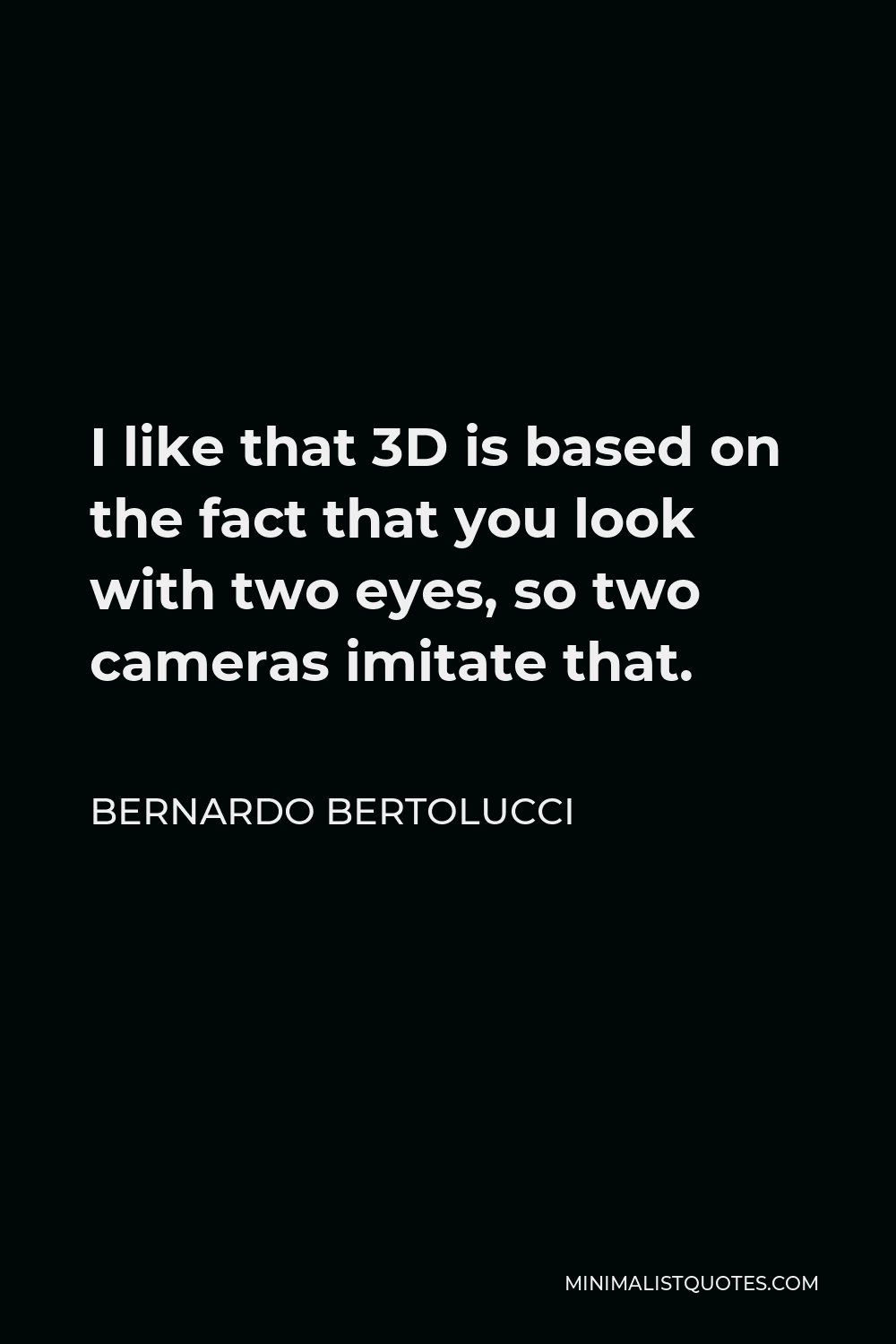
I like that 3D is based on the fact that you look with two eyes, so two cameras imitate that.
BERNARDO BERTOLUCCI -





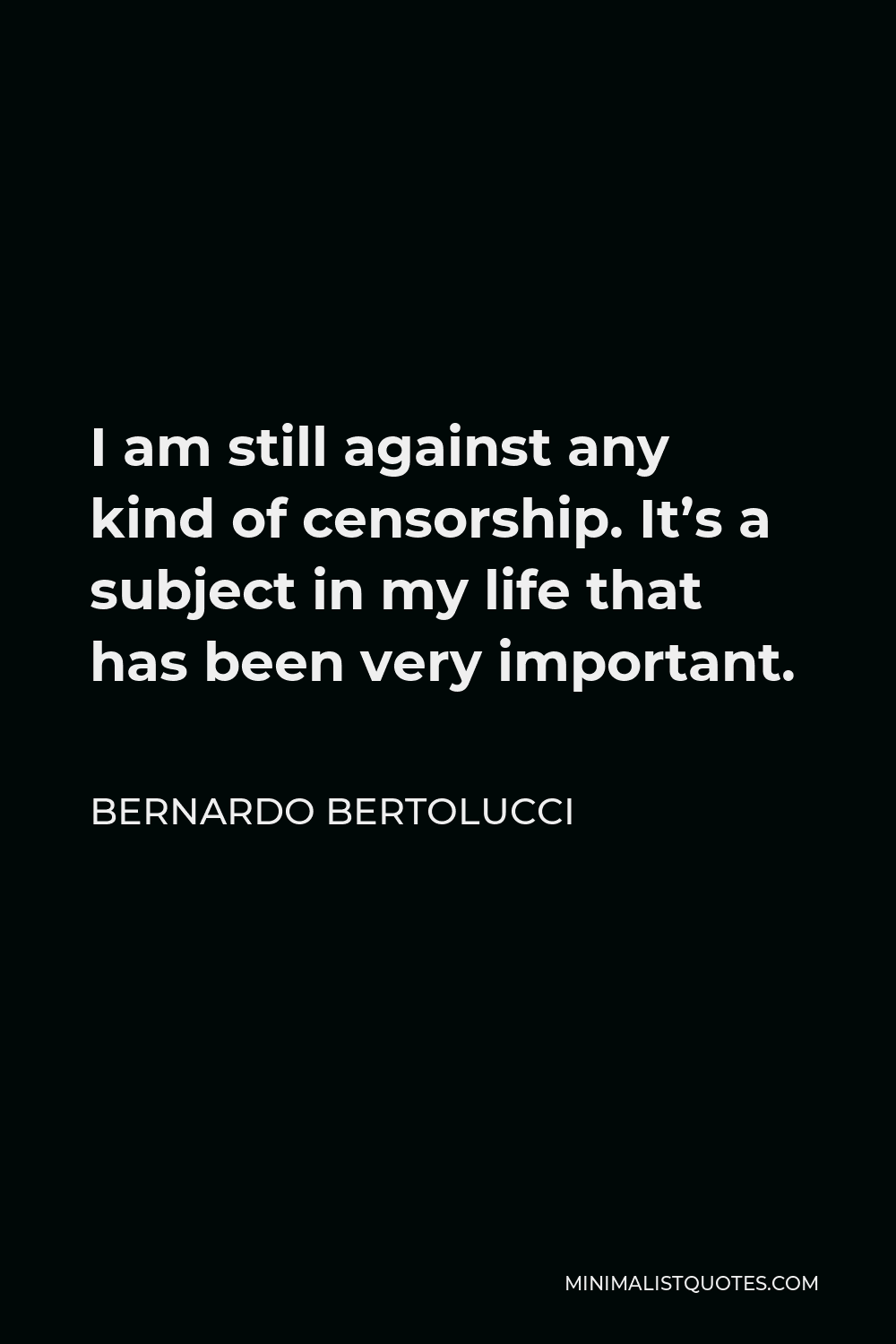
I am still against any kind of censorship. It’s a subject in my life that has been very important.
BERNARDO BERTOLUCCI -





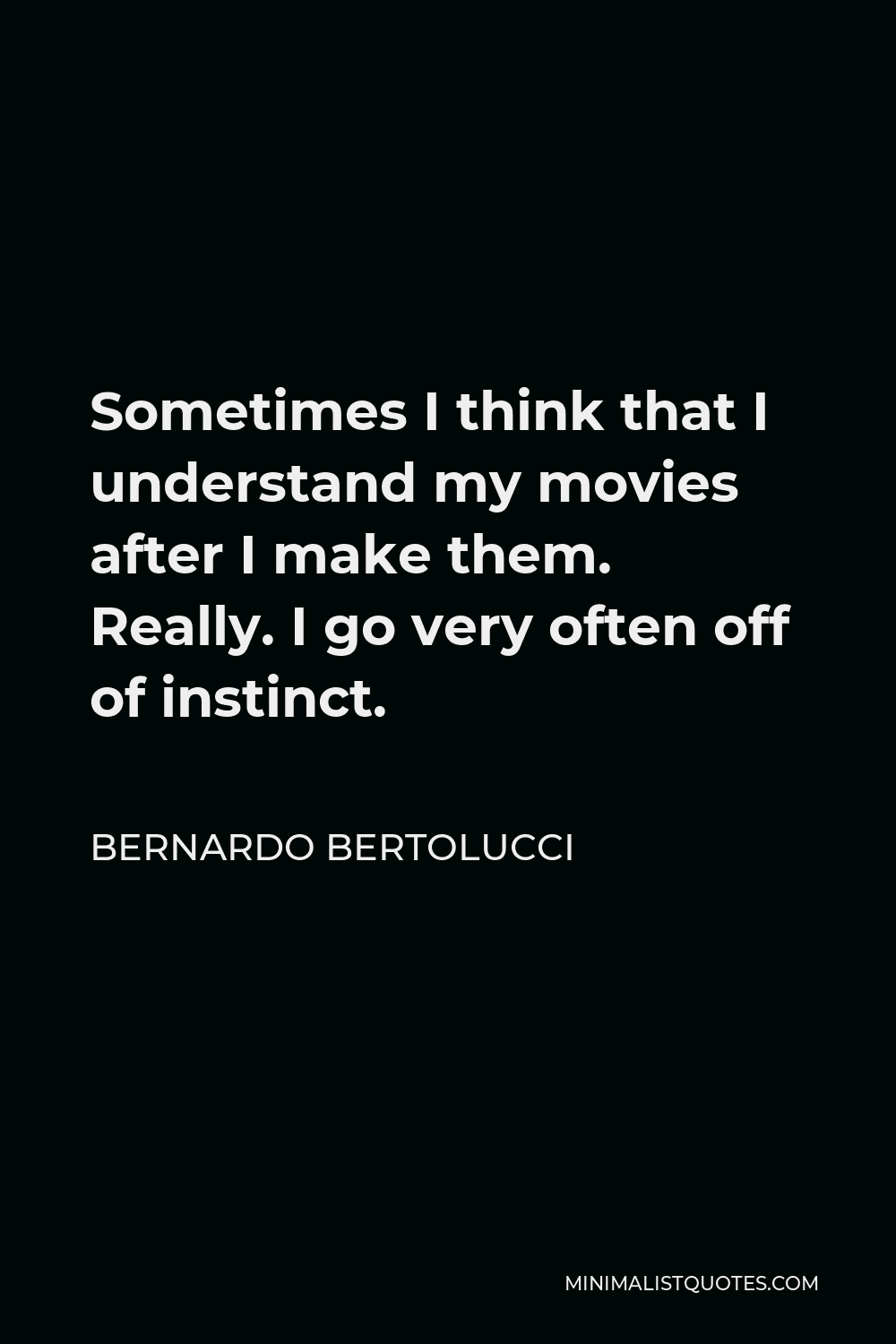
Sometimes I think that I understand my movies after I make them. Really. I go very often off of instinct.
BERNARDO BERTOLUCCI -





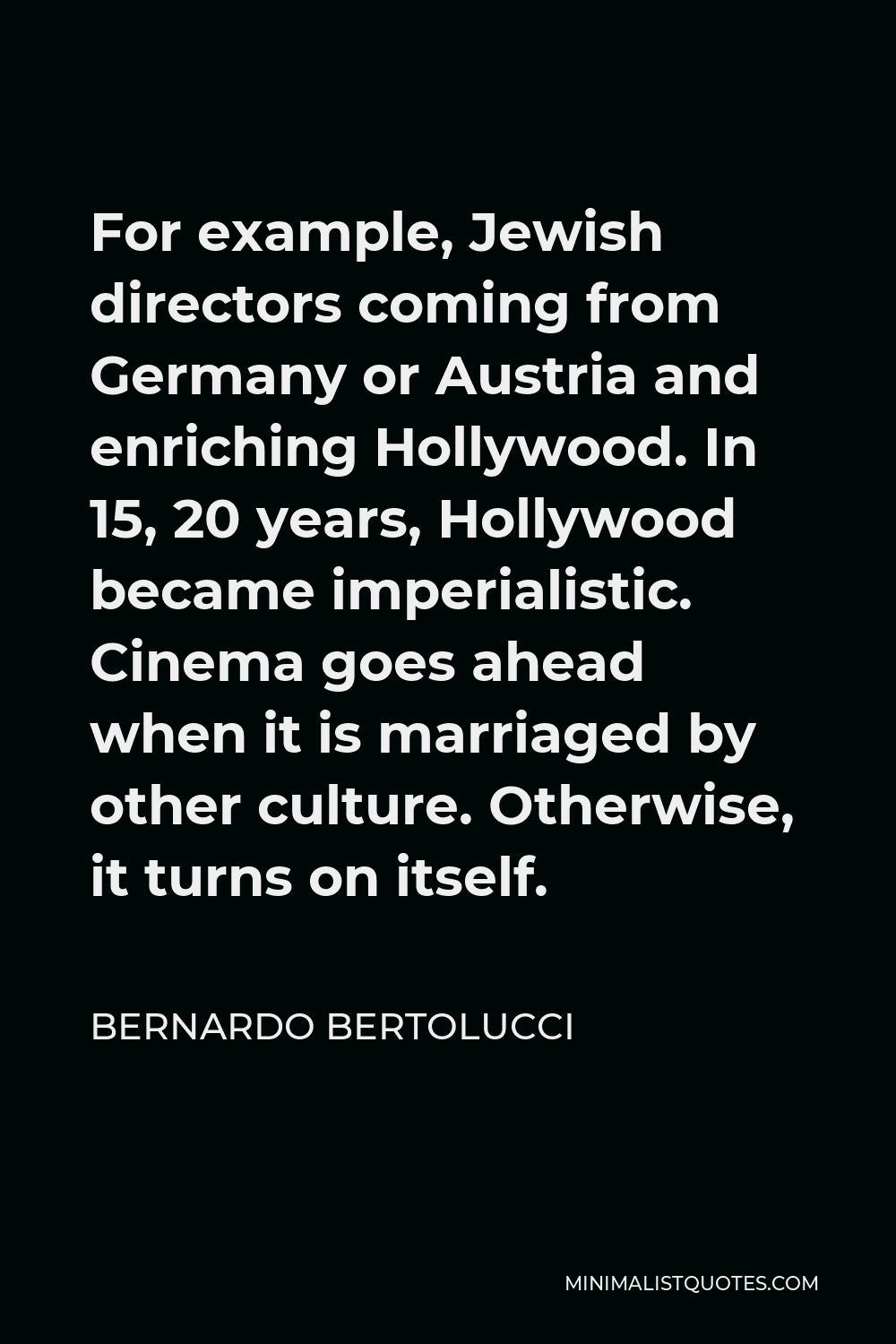
For example, Jewish directors coming from Germany or Austria and enriching Hollywood. In 15, 20 years, Hollywood became imperialistic. Cinema goes ahead when it is marriaged by other culture. Otherwise, it turns on itself.
BERNARDO BERTOLUCCI -





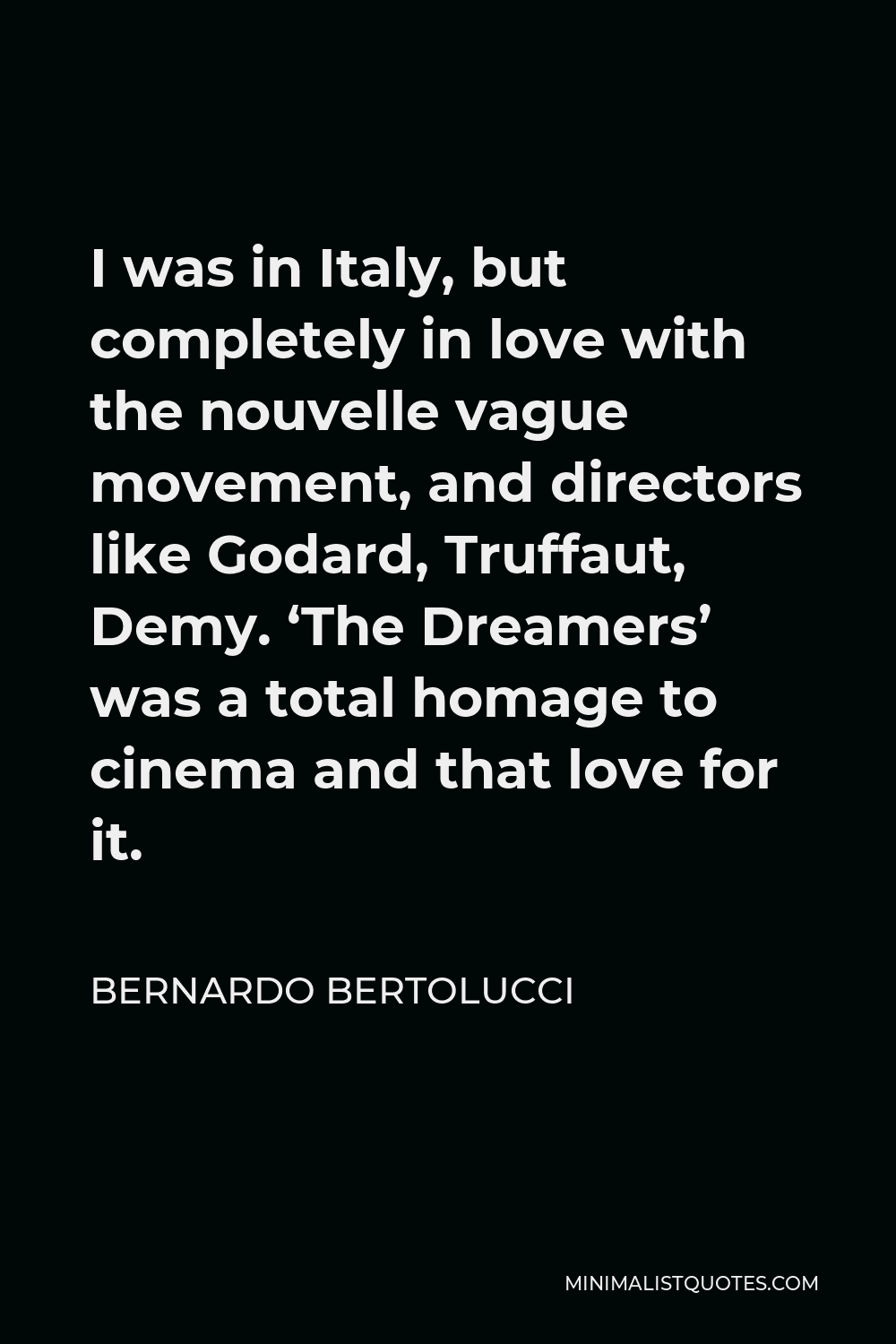
I was in Italy, but completely in love with the nouvelle vague movement, and directors like Godard, Truffaut, Demy. ‘The Dreamers’ was a total homage to cinema and that love for it.
BERNARDO BERTOLUCCI -





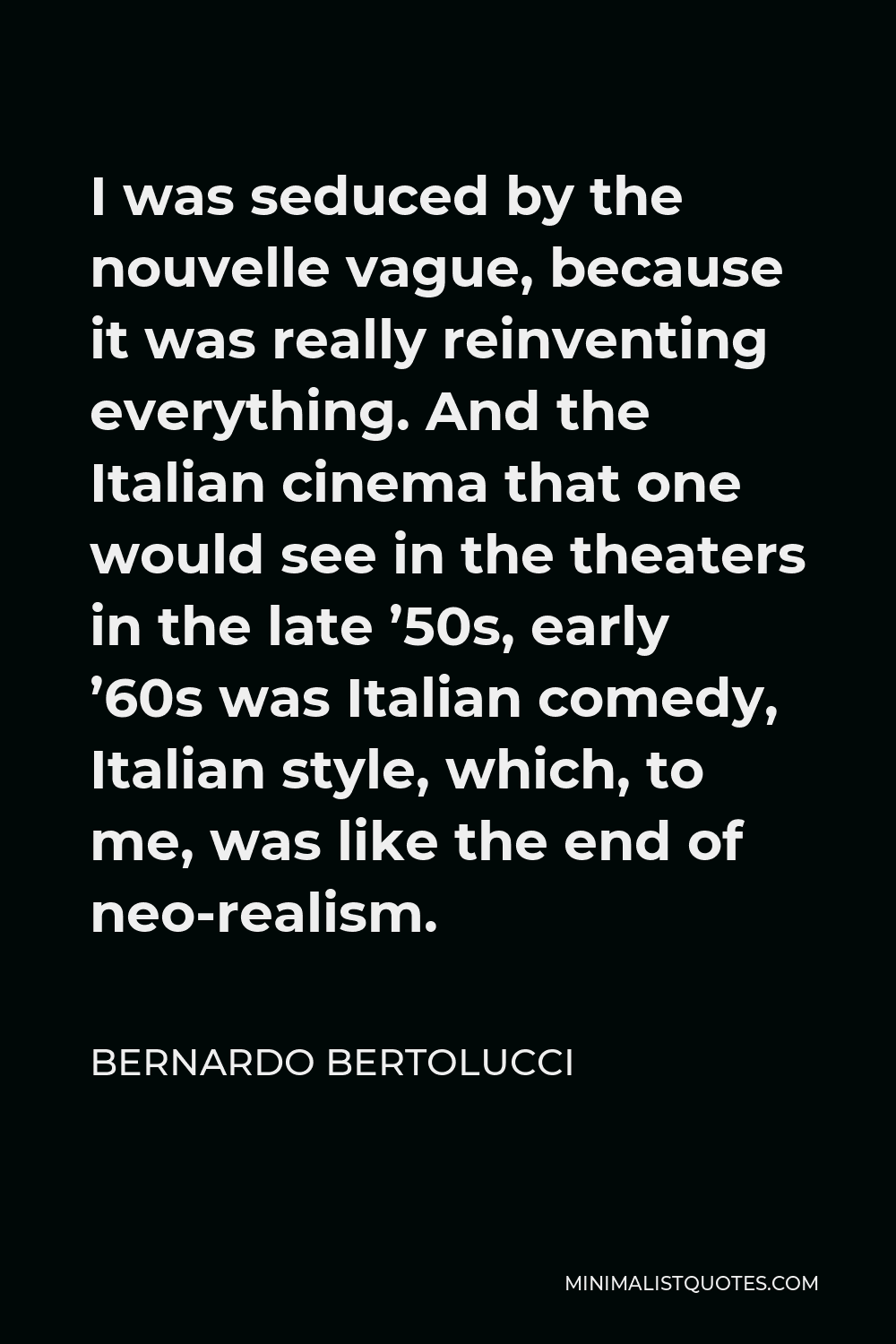
I was seduced by the nouvelle vague, because it was really reinventing everything. And the Italian cinema that one would see in the theaters in the late ’50s, early ’60s was Italian comedy, Italian style, which, to me, was like the end of neo-realism.
BERNARDO BERTOLUCCI -





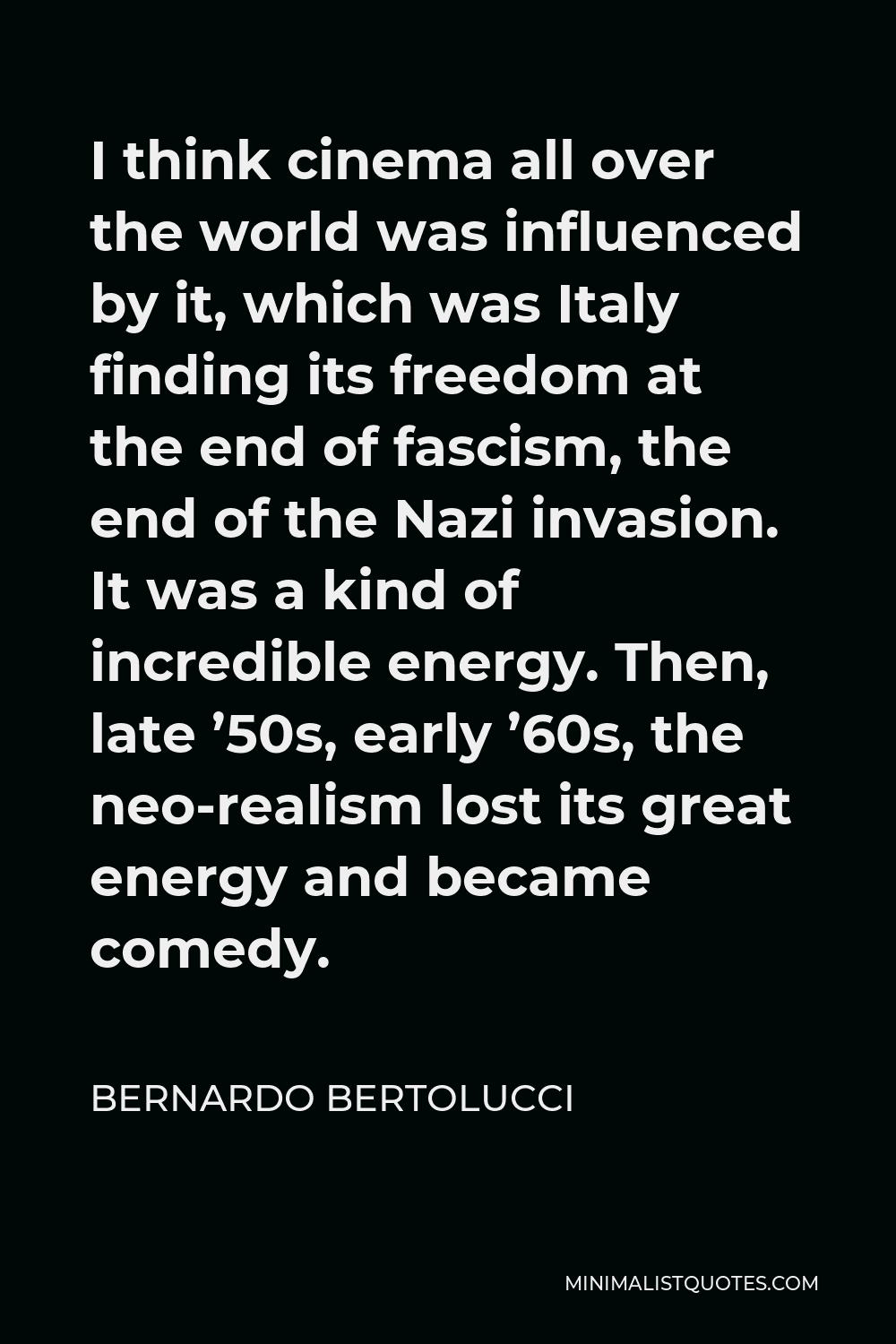
I think cinema all over the world was influenced by it, which was Italy finding its freedom at the end of fascism, the end of the Nazi invasion. It was a kind of incredible energy. Then, late ’50s, early ’60s, the neo-realism lost its great energy and became comedy.
BERNARDO BERTOLUCCI -





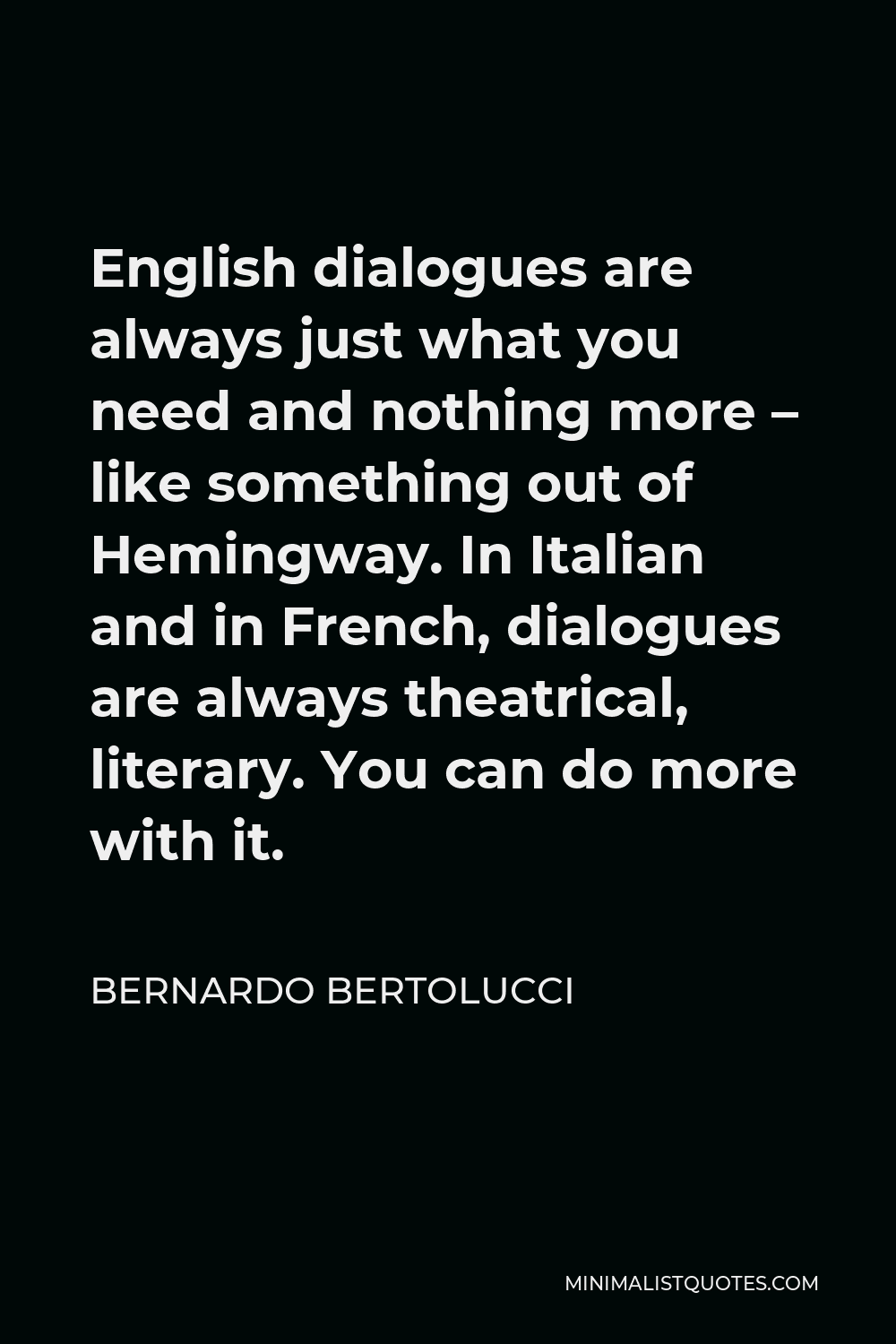
English dialogues are always just what you need and nothing more – like something out of Hemingway. In Italian and in French, dialogues are always theatrical, literary. You can do more with it.
BERNARDO BERTOLUCCI

